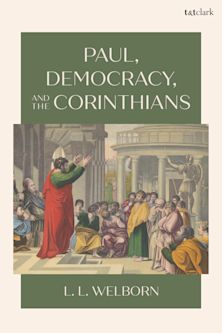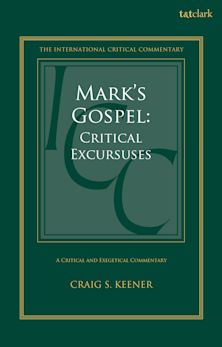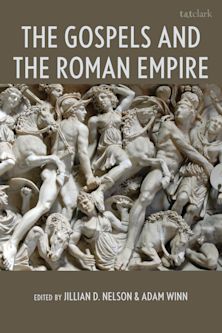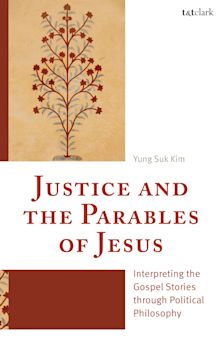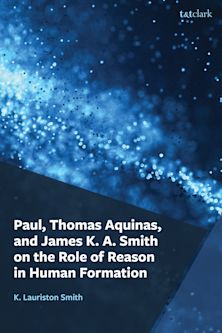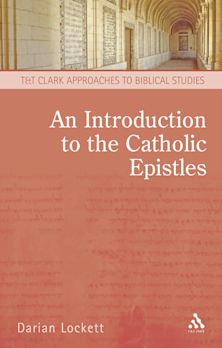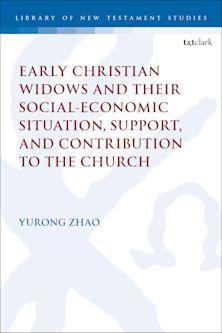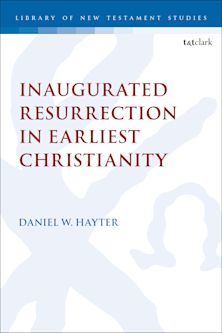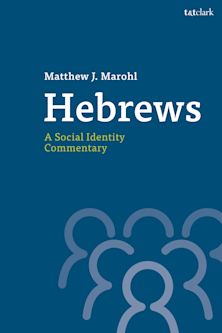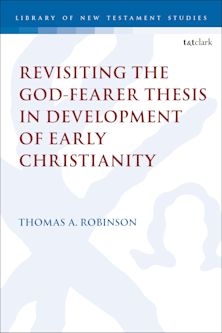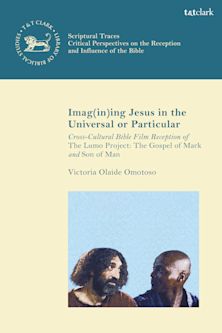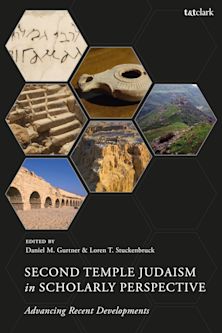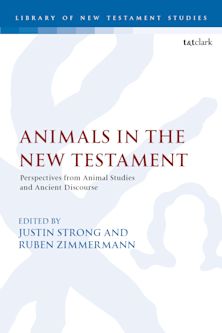- Home
- ACADEMIC
- Biblical Studies
- New Testament
- Romans: Three Exegetical Interpretations and the History of Reception
Romans: Three Exegetical Interpretations and the History of Reception
Volume 1: Romans 1:1-32
Romans: Three Exegetical Interpretations and the History of Reception
Volume 1: Romans 1:1-32
You must sign in to add this item to your wishlist. Please sign in or create an account
Description
In the first of a three-volume work, Daniel Patte presents three very different critical exegeses of Romans 1, arguing that all are equally legitimate and hermeneutically plausible. By expanding upon and respecting the exegeses of many erudite scholars of the last two centuries, Patte concludes that three families of vastly different critical interpretations are fully justified: traditional philological and epistolary studies; rhetorical and sociocultural studies; and figurative studies of the “coherence” of Paul's teaching.
Arising from a long-standing interdisciplinary investigation of many receptions of Romans in light of recent diversification of exegetical methodologies, Patte concludes that the interpretation of a scriptural text necessarily involves making a choice among equally legitimate and plausible alternatives; and second, that this choice is always contextual and ethical. When these points are denied (by failing to respect the interpretations of others and absolutizing one's interpretation), instead of being a scriptural blessing, Romans becomes a deadly weapon against others – heretics, Jews (Shoah), and many others. The result is a threefold commentary of Romans 1 that is unique in its scope and thorough-going exegesis.
Table of Contents
Foreword: Critical Readings and Receptions of Romans in an Age of Fake News and Alternative Facts
Introduction. Reading Romans After Studying its Receptions
Part One: Critical Interpretation and the History of Reception of Romans
1. Receptions of Romans Through History and Cultures: A Challenge for Exegesis, Theology, and Ethics
2. Critical Exegeses of Romans and the Plurality of Legitimate and Plausible Interpretations
Part Two: A Triple Commentary: Three Legitimate and Plausible Critical Exegeses of Romans 1:1-32
3. Reading Romans 1:1-32 For its Forensic Theological Argument
4. Reading Romans 1:1-32 for its Call to Mission of an Inclusive Covenantal Community
5. Reading Romans 1:1-32 for its Realized-Apocalyptic/Messianic Vision
Part Three: Critical Exegesis and Receptions of Romans 1:1-32
6. The Contextual Character of the Three Legitimate and Plausible Interpretations of Romans 1:1-32
7. Receptions of Romans 1:1-32 as Guides for Choosing among Interpretations
Conclusions
Appendix: Threefold Interpretive Choices about 31 Key Theological and Ethical Themes in Rom 1:1-32
Bibliography
Index
Product details
| Published | 26 Jul 2018 |
|---|---|
| Format | Ebook (PDF) |
| Edition | 1st |
| Extent | 560 |
| ISBN | 9780567681447 |
| Imprint | T&T Clark |
| Publisher | Bloomsbury Publishing |
About the contributors
Reviews
-
Covering how these three kinds of commentary are related to the reception history of Romans, Patte further elucidates how interpretive choices are influenced by a reader's social location and interpretive contexts, and underscores how we must become responsible for our interpretive choices that may literally have life-or-death implications. The book will make you think-and think again-about what happens when we interpret and after we interpret as scholars and teachers of the Bible.
Tat-siong Benny Liew, College of the Holy Cross, USA
-
This is the magisterial work of an excellent biblical scholar. The respect for the diversity of interpretations, the multiplicity of interpretive choices and the appreciation of the wisdom of generations of interpreters renders this project an invaluable contribution not only to the guild of exegetes, but to the conversation of all who cherish biblical texts in diverse contexts. With avenues for further conversations over diverse interpretations being opened, this project marks the legacy
of Daniel Patte to biblical studies.Kathy Ehrensperger, University of Wales Trinity St David, UK

ONLINE RESOURCES
Bloomsbury Collections
This book is available on Bloomsbury Collections where your library has access.













